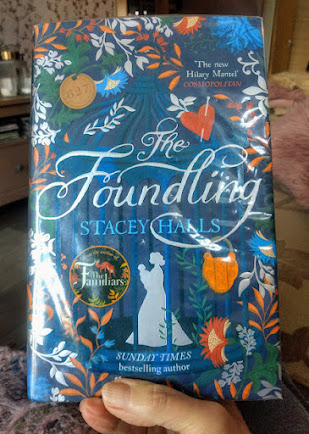Founded in 1739 The Foundling Hospital in London was established to care for abandoned babies, mostly due to extreme poverty. A token and a number was given to the mother when she handed over her baby, which would then be presented when the mother was ready to claim the child. Many babies were near death and did not make it through their first year. The healthy ones often made it into the homes of the rich against the mothers wishes who were branded 'insane'.
This story is about two women from very different backgrounds whose lives become entwined through one little girl.
Our very young protagonist Bess Bright is forced to part with her daughter the day after she was born. Bess knows it will take several years before she has enough money to retrieve Clara and give her a home. This hope gives her the strength to work and be patient.
Six years later Bess returns to reclaim her daughter, to be told that Clara was reclaimed by her the day after she put her into care. Bess is in turmoil as she sets about trying to find out who has taken her little girl - and why. When she questions the governors of the Foundling, they have no answers. Not one to give up though Bess goes back and is introduced to doctor Mead who says he will try to help her.
Less than a mile from Bess' lodgings in the city, in a quiet, gloomy townhouse on the edge of London, Alexandra, a young widow, has not left her house in a decade. Doctor Mead is a close friend of Alexandra, and, in an effort to help both women, he persuades the widow to hire Bess as a nursemaid for her daughter.
The period setting is superb and the characterisation is excellent. The theme is heart-breaking and unforgiving. Life for the poor and vulnerable in 1700’s London was grim. You can feel the poverty, the cold, the slum dwellings, the despair.















